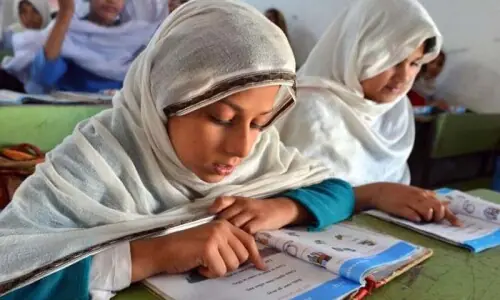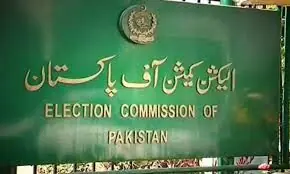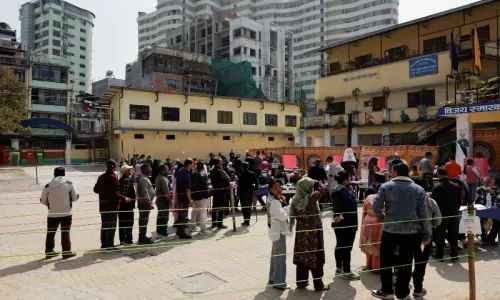WASHINGTON: US military institutions are struggling to fill the 66 slots they had kept aside for officers from Pakistan for the next academic year, as the Trump administration refused to provide funds for their training, official sources said.
The fund for training Pakistani officers came from the US government’s International Military Education and Training Programme (IMET) but no funds were made available for Pakistan for the next academic year.
Dawn first learned about the suspension from the US National Defence University (NDU), Washington, which has had reserved seats for Pakistani officers for more than a decade now. The outgoing Pakistani officers, however, were told that the university has been asked to fill the positions for the next year with officers from other nations.
The NDU is one of several US military institutions that train officers from Pakistan. The Trump administration announced early this year that it was suspending security assistance to Pakistan over differences on Afghanistan but indicated that training programmes for military officers will continue.
The cancellation of slots kept aside for Pakistani officers, however, shows that the suspension now also applies to training programmes.
American officials are worried the Trump administration’s decision could undermine a key trust-building measure
The United States had severed security ties with Pakistan in early 1990s as well over the country’s nuclear programme but US officials later acknowledged that it was a mistake. They argued that the severance created a situation which allowed the Taliban, Al Qaeda and other terrorist groups to develop roots in Pakistan.
Pakistani officers have been receiving military training and education in the United States since early 1960s, which were suspended in the 1990s but restored after the Sept 11, 2001 terrorist attacks.
The decision to suspend military training for Pakistani officers was also reported by an international news agency, Reuters, which observed that both the US and Pakistani officials were criticising the move, privately.
“US officials said they were worried the decision could undermine a key trust-building measure. Pakistani officials warned it could push their military to further look to China or Russia for leadership training,” the report added.
Dan Feldman, a former US special representative for Afghanistan and Pakistan, called the move “very short-sighted and myopic”.
“This will have lasting negative impacts limiting the bilateral relationship well into the future,” Mr Feldman told Reuters.
A State Department spokesperson told journalists in Washington that the IMET cancellations were valued at $2.41 million so far. At least two other programmes have also been affected, the spokesperson said.
Previously, it was not just Pakistan that valued the training and education its officers received in the US.
US military institutions also proudly owned training officers who assumed senior positions after returning home, such as the former army chief, Gen Ashfaq Parvez Kayani, and Lt Gen Naveed Mukhtar, the current director general of the Inter-Services Intelligence.
“This is an unfortunate and ultimately counterproductive decision. There are certainly ways to send a strong message to Pakistan, but this isn’t the way to do it,” Michael Kugelman, an expert of Pakistan affairs at a Washington think tank, the Wilson Center, told Dawn.
“This move could squander what little goodwill and trust remains in the military-to-military relationship, and it reduces the likelihood that Pakistan will act in the ways that Washington would like it to act.”
Mr Kugelman noted that there was a long history of educational and training cooperation between the US and Pakistani militaries, and this cooperation had withstood the pressures and tensions of the relationship.
“The fact that these educational exchanges have suffered this blow now suggests that the relationship could be entering into a new phase where even the supposedly safe and protected dimensions of the relationship can become casualties of wider tensions and ill will,” he said.
Published in Dawn, August 11th, 2018

































